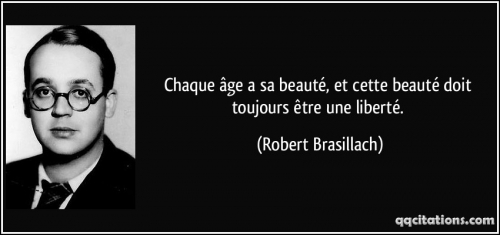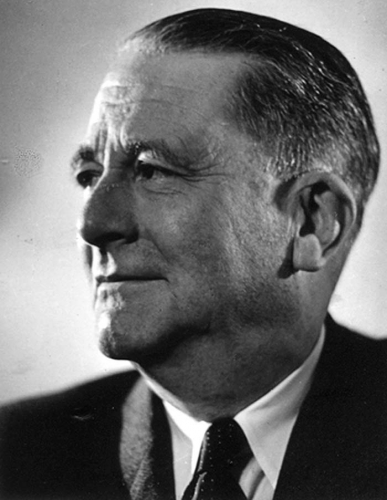
Carl Schmitt (1888-1985): Brief Biography of the Controversial German Jurist
by Colm Gillis
Ex: http://carlschmittblog.com
Carl Schmitt was one of the greatest intellectuals of the 20th century. This is a very brief overview of his remarkable life and career.
Carl Schmitt was born in 1888. Plettenberg, his home town, was a Protestant hamlet, but Schmitt was baptized a Catholic. As was typical for those of Rhenish Catholic stock, Schmitt was possessed of a strong sense of identity. This was combined with an equally strong sense of transnationalism. Circumstances, the Rhenish Catholic outlook, and prevalent sectarianism in Germany at the time, meant that he was exposed to pluralism, religious divisions, political questions, and geopolitics.1
He received first and second-level education in Catholic institutions, acquiring a thorough understanding of the humanities, in particular religion and Greek. At the same time, Schmitt was exposed to materialism. Familiarity with ideologies like Liberalism bred contempt and Schmitt maintained his religious zeal long after he left behind his formative years.2
After attending Universities in Berlin and then Strassburg, Schmitt received his doctorate in 1910. Following graduation, he honed his legal skills. At Strassburg, Schmitt took a stance against positivistic legal theory. Positivism located legitimacy in the sheer fact of a sovereign government. Analysis of legal rulings was restricted to the intention of the lawgiver. Positivism ruled out the use of, for example, natural law theories, and Schmitt’s Catholic upbringing most likely was what made him averse to such a legal approach.3
At this stage Schmitt’s views on law were informed by the neo-Kantians, who placed a ‘right’ above the state and who saw it as the function of the State to fulfil this right. While professing loyalty to the State and to a perceived right order, Schmitt tended to subordinate the individual, an anti-liberal stance maintained throughout his career.4
Schmitt’s meeting with the barrister and deputy of the Center party, Dr Hugo am Zehnhoff, in 1913 influenced Schmitt profoundly. In particular Schmitt turned away from subjugating law to a set of transcendent norms. Instead concrete circumstances were to provide the basis for law from now on.5

Dr Hugo am Zehnhoff
Before the war, he published two books. But his inclinations at this stage were not overly political. This apoliticism was common amongst German intellectuals at the time. Generally, the existing order was accepted as is. It was felt inappropriate for academics to weigh in on practical issues.6
After passing his second law exam in 1915, Schmitt volunteered for the infantry, but suffered a serious back injury. So he served out WWI performing civil duties in Bavaria which were essential to the war effort. Schmitt administered the martial law that existed throughout Bavaria and elsewhere in Germany. He married his first wife, Pawla Dorotić, a Serb whom he later divorced in 1924, at this time. Pawla’s surname was added to his so as to give himself an aristocratic air, an indication of Schmitt’s determination to advance himself.7

Hindenburg and Ludendorff formed an effective dictatorship in Germany during WWII
In line with much of Conservative German thought at the time, Schmitt viewed the state – not as a repressive or retrograde force that stifled freedom – but as a bastion of tradition securing order. Dictatorship was mused upon. This, in Schmitt’s mind, was constrained by a legal order and could only act within that legal order. Dictatorship was functional, temporary, and provided a measure of order in emergency situations, but was not to be transformative and break from the structure which preceded it and dictated to it. In other words, it was to be a dictatorship in the mould of classical dictatorship which was extant in the Roman republic.8
As for the purpose of the world war itself, Schmitt displayed his ever-present aloofness. While many thinkers in Germany saw the war in very stark terms, as a struggle to uphold the ‘spirit’ or as a struggle against Enlightenment rationalism, Schmitt opined that the war proved the tragic existence of man in the modern world. Men had lost their souls and corrupted by a glut of knowledge and a dearth of spirituality.9
Strassburg’s loss to the Reich after the war meant that Schmitt had to downgrade to a lectureship at the School of Business Administration in Munich, a post which he achieved with the aid of Moritz Julius Bonn. Bonn would remain a close friend. Despite their political differences, Schmitt and Moritz were companions until the end of Weimar.10
While Schmitt would be forever known as a provocative critic of the Weimar republic, he was always loyal to its institutions from its inception, albeit with reservations. Catholics had their hand strengthened by the Weimar republic. Hence, Schmitt and others were unlikely to overthrow an institution that had favoured them. On the other hand, Versailles was perceived as a humiliation and seemingly even worse for Schmitt, a distortion of law. Antipathies were harboured by Schmitt towards the US on these grounds. America was considered it to be a hypocritical entity who impressed upon people a neutral, liberal international law operating alongside an open economic system, but because the latter had to be guaranteed, the former could not be neutral.11
Differences between jurists that existed before the onset of war were further exacerbated after the war. Hans Kelsen, the normativist scholar, was Schmitt’s main rival. Those like Schmitt opposed what they saw as an unrealistic objectivism.12
After the war, Schmitt turned his back on neo-Kantian perceptions of right. Instead he interpreted the turmoil of the war and post-war anarchy as proof for his ‘decisionist’ theories. Law and legitimate rule were located in the hands of a clearly defined sovereign. Legal procedure would be kept to a minimum. Justice would be substantive as opposed to merely formal.
Schmitt placed order before the application of law and he increasingly saw many of the assumptions and modus operandi of Liberalism, democracy, and parliamentarianism to be unworkable, subversive, irrational, prone to elitism, and too politically agnostic in the Germany of his day. His criticisms of domestic law mirrored those of international law – too much faith was placed in supposedly neutral theories of law. Sheer ignorance of power structures or realities on the ground was what kept ‘rule-of-law’ theories going.13

Schmitt mused much on dictatorships like the one headed by Sulla, the Roman dictator
Disillusioned with modern politics, he sought refuge in counter-revolution thinkers, notably de Maistre, Bonald, and Donoso Cortés. Schmitt did much to resurrect the reputation of Cortés in particular, an ex-liberal from Spain who produced far-reaching analyses of mid-19th century European politics. Cortés’ discourse was framed in highly theological language.14
Schmitt distanced himself from ‘conservative revolutionaries,’ however. Conservative revolutionaries held that traditional conservatism needed to utilize modern techniques to save Germany from atheism, Liberalism and Bolshevism. Schmitt considered their opinions too crude. Diversification was key and Schmitt interacted with the left and right and every shade in between, with the possible exception of Liberals, although he never seems to have found an intellectual soul-mate.15
Yet Schmitt concurred with the conservative revolutionaries in one important respect; namely that he found the age to be dead, lacking in vitality, and overly rationalistic. Liberalism and parliamentarianism were increasingly in the cross-hairs and the first pre-emptive strike was his book Political Romanticism (1919), which was released after the war. This was not a template for later Schmittian works, but was symptomatic of an impatience with relentless individualism. One can read many subtexts from this work that would appear in his more celebrated studies.16
Following Political Romanticism, Schmitt’s targets were pinpointed to greater precision. Dictatorship (1921), Political Theology (1922), and The Crisis of Parliamentary Democracy (1923), were three noteworthy books released in the early 1920s. Liberalism’s flawed ontology of mankind was critiqued. Contradictions in Liberalism were exposed. Dangerous phantasms of parliamentarianism were rationally elucidated. Power in the ‘real’ world of politics was discussed. And more. 17
At the same time, Schmitt was aware of the increasing totalitarianism evident in modern politics, being one of the first to recognize this trend, and even articulating an awareness of the power of modern media. His position was somewhere in between the value-neutral position of Liberalism and the absolute control espoused by Statists. He was acutely aware of the weaknesses of Weimar Germany in the face of ideologies demanding increasing loyalty from their members. In parallel with his fear of totalitarianism was his disgust at the way that private interests were embedding themselves into public institutions. Nevertheless, by 1925, the constitutional lawyer Richard Thoma was accusing Schmitt of authoritarianism, a penchant for the irrational and desiring the hegemony of the Church in Germany.18
Schmitt gained a reputation as a legal theorist who leant strongly on article 48 of the Weimar Constitution during this period. In this article, a provision was made for emergency rule in the event of political breakdown. For Schmitt, as opposed to those like Thoma, law was meaningless without a stable order in place. He took a very realistic perspective, and in fact was not ideologically inclined against democracy or parliament. But he harboured misgivings that the supposed nature of democracy or parliamentarianism, as articulated by his contemporaries, was historically accurate. In any event, the modern forces which Liberalism had unleashed would put paid to whatever the interest-based new order tried to accomplish, Schmitt also surmised.19

Frontispiece of a booklet of the Weimar Constitution
Schmitt spent the bulk of the 1920s at Bonn, and moved there in 1922 after stints at Berlin and Greifswald, leaving Bonn in 1928. In 1926 he got married to Duschka Todorovitsch, another Slav. In the next several years, two of his most important books, The Concept of the Political (1927, with a new and highly amended edition appearing in 1932) and Constitutional Theory (1928) were published. The former, in particular, marked a ‘turn’ in Schmitt’s thought: he was now less inclined towards the Catholic Church. Already he had been turning to Rosseau and his theories of the identity of people and government.20

Schmitt and his wife in the 1920s
Introducing Schmitt’s famous ‘friend-enemy thesis,’ The Concept of the Political was a revolutionary book in political science and philosophy. Continuing in the same vein as earlier works such as Political Theology, Schmitt saw the State as the only body competent to pursue political existence by identifying the friend-enemy distinction. Despite the apparent amorality of the study, many commentators, including his Catholic friend Waldemar Gurion, were impressed by what was undeniably an astute analysis.21
Both the Weimar Republic and Schmitt the intellectual reached the height of their powers in the years immediately before the Wall Street crash. Schmitt would go to Berlin just before the fatal blows were struck against the nascent republic. He now commanded widely-held kudos as a jurist, and the financial crisis would now give him influence as a political adviser.22
Germany was on the precipice at this stage and article 76 of the Weimar constitution particularly disturbed Schmitt. He harboured no illusions about what this provision, which enabled a popularly elected party to do as it pleased with the constitution, signified for those antagonistic towards the State. Schmitt now became close to Johannes Popitz, Franz von Papen, and General Kurt von Schleicher, all of whom represented traditional German values. During the chancellorship of Heinrich Brüning, the Centre party leader, he acted as constitutional advisor to President Paul von Hindenburg. True to his past form, Schmitt provided legal cover for the use of emergency decrees which helped see the republic through the treacherous currents of the early 1930s. Surrounded by practical men, Schmitt and his colleagues were only interested in making Germany a strong and stable country. At this time, he also recognized the need for government to concern itself with economic matters. Schmitt neither sought to repress trade unions nor exalt business interests within the corridors of powers, but advocated the pursuance of an economic policy that was neutral.23
There was more than a touch of Keystone Cops about Schmitt, von Papen, von Schleicher, and other traditional conservatives, as they struggled to manoeuvre and deal with the burgeoning National Socialist movement. One of Schmitt’s treatises, Legality and Legitimacy, was used by supporters of von Papen and von Schleicher to justify the increasingly authoritarian measures required to cope with the turmoil in Germany, which by 1932 had become pervasive. Ill-judged use of Schmitt’s theory handed an initiative to the NSDAP in 1932 during a landmark case in Prussia. In 1932, he also wrote an article in the run-up to elections called The Abuse of Legality, where he repeated his arguments in Legality and Legitimacy. The most important of his arguments, in this context, was the conviction that the Constitution cannot be used as a weapon against itself.24
In 1932, von Schleicher tried to outwit the NSDAP. He lifted bans on paramilitary groups aligned with the National Socialist movement, but also tried to woo right-wing voters through innovative economic measures. Strategic support was lent to these tactics by Schmitt. However, these plans backfired. The NSDAP grew in strength and Hitler was underestimated by those like the conservatives, who believed in their own superiority and powers of manipulation. Meanwhile, Schmitt’s ideas were commoditized by those like Hans Zehrer and Horst Grüneberg, editors of Die Tat, who found knives in Schmitt’s writings where there were only scalpels.25

Schmitt’s article ‘The Fuehrer protects the right’
One last episode of farce remained before the death of Weimar: Von Schleicher conversed with Hindenburg about banning anti-constitutional parties that were now incapable of being contained in 1933. This conversation was leaked. Schmitt’s name was associated with the backroom shenanigans, and he had an embittered, and personal exchange with Prelate Kaas, leader of the Centre Party, who charged Schmitt with promoting illegality. Schmitt later heard about Hitler’s appointment in a café. Just at this time, he was moving from Berlin to Cologne, a move unrelated to the political trouble. Schmitt’s departure from the capital seemed just as well timed as his arrival.26
True to his form of being able to condense the most momentous of events into a single phrase, Schmitt remarked on January 30 1933 that ‘one can say that Hegel died.’27 Schmitt saw Hitler’s rise to power through the lens of vitality and Kultur. National Socialism had ousted a bureaucracy that had powered the rise of the German state, only to disappear once the work of the bureaucratic State was complete. He joined the NSDAP in May 1933, although it was not a significant gesture, because the purging of the civil service had meant that Schmitt was virtually compelled to join.28
A full professorship in Berlin, a post at the Prussian state council, a nomination to the nascent Akademie für Deutsches Recht, an appointment to the editorial board of the publication of National Socialist legal theorists Das Deutsche Recht, and appointment to the head of higher education instructors of the National-Socialist Federation of German jurists came in quick succession in 1933.29
In 1934 he partly backed that year’s notorious purges in the provocatively titled The Führer Protects the Law. In his opposition to the slaughter of innocents, Schmitt showed his astuteness. He was able to cite both Hitler and Goering, who admitted publicly that mistakes were made in the purges. Schmitt called for a state of normality to be re-imposed, now that the danger to the state had passed. Despite his attempts to quell the bloodshed in Germany, Schmitt’s writings appeared to emigrés as rubberstamping a fanatical government that was out-of-control. His old friend Gurian coined the term ‘Crown Jurist of the Third Reich’ for Schmitt.30
Protestations of emigrés against Schmitt didn’t go unnoticed by the authorities, and their dredging up of Schmitt’s past stance towards the NSDAP stifled, and then reversed, Schmitt’s rise through the ranks. It seemed as if the more Schmitt tried to ingratiate himself – by 1936 he had approved of the Nuremberg laws and also proposed a purging of the law-books of Jewish influence – the more he alienated himself.31
The SS and their publication, Das Schwarze Korps, were the vanguard of ideological purity in the Third Reich. From this platform, they were eventually able to force Schmitt to leave the public bodies he had served in and he retired to academia. Disillusioned, he drew more on the theories of Thomas Hobbes, in particular his theory of obedience being given in return for protection in a 1938 work. Schmitt also explored international law, and would remain a critic of the global order until his death, notably calling for an international system where countries would guard Grossraum, large swathes of territory that powerful States would claim as their backyard as the US had done with the Monroe Doctrine. This should not be confused with racially charged Lebensraum theories.32
In the last phase of the war, Schmitt served in the German equivalent of the Home Guard and was captured by the Soviets. Ironically, the Bolsheviks released him after considering him to be of no value, either because of what he told the Russians or because of his age. Schmitt did not receive the same leniency from the Americans and he spend thirteen months, after his arrest in September 1945, incarcerated, also suffering the ignominy of having his massive library confiscated. The main accusation levelled against him was that he had provided intellectual cover for the NSDAP Lebensraum policy.33 Chastened by his experiences, Schmitt retreated into what he told his interrogator Robert Kempner was a ‘security of silence’34 and he composed the following lines which served to summate the attitude he adopted after the war
Look at the author most precisely
Who speaks of silence oh so nicely;
For while he’s speaking of quiescence
He outwits his own obsolescence.35
Schmitt did not maintain a strict silence, as the lines suggest, but continued his manner of couching his writings in esotericism, a manner which he adopted during NSDAP rule. After his ordeal at the hands of the Americans, Schmitt retired to a house which was named San Casciano, either after the name of the residence that Machiavelli retired to after he was ousted from power, or after the name of a Christian martyr in the reign of Diocletian who was stabbed to death with a stylo by one of his students.36
Even in his old age, Schmitt divided opinion, but kept producing works of literary quality. The Nomos of the Earth (1950) was Schmitt’s last major work and his key study on international relations. That is not to downgrade the quality of many of his later works, such as Theory of the Partisan (1963), which are still highly relevant in the modern world. He also revised many of his earlier writings so as to keep pace with the new world that had replaced the previous European order that had existed from the 17th century. Theology came back into focus for Schmitt and his Political Theology II (1970) critiqued the classical position adopted by Erik Peterson, in respect of the Church’s position towards politics. Friendships with Jacob Taubes, a Jewish rabbi, and Alexandre Kojève, the outstanding Hegelian philosopher, revived his reputation.37
Schmitt’s downfall somewhat mirrored similar events surrounding Machiavelli. His death in his home town of Plettenberg at the grand age of 97 matched the somewhat similar life-span enjoyed by Hobbes.38 Life for both may have been nasty and brutish, at times, but was definitely not short!
Currently, I am researching a book on Carl Schmitt because I need to know about politics. Any comments or suggested corrections to this post are welcome. I have already authored one book Mysteries of State in the Renaissance. My Amazon page is here.
NOTES
[1] Carl Schmitt’s International Thought: Order and Orientation William Hooker Cambridge University Press Cambridge 2009 pp. xiii; State, Movement, People: The Triadic Structure of Political Unity Carl Schmitt (Simona Draghici (Trans.)) Plutarch Press Corvalis, Or. 2001 pp. ix; The Concept of the Political (Expanded Edition) Carl Schmitt (George Schwab (Trans.)) The University of Chicago Press Chicago 2007 pp. 4; Carl Schmitt, theorist for the Reich Joseph W. Bendersky Princeton University Press Princeton, N.J. Guildford 1983 pp. 3-5.
[2]The Concept of the Political (Expanded Edition) Carl Schmitt (George Schwab (Trans.)) The University of Chicago Press Chicago 2007 pp. 4; The Challenge of the Exception: Introduction to the Political Ideas of Carl Schmitt Between 1921 and 1936 (2nd Ed.) George Schwab Greenwood Press New York Westport, Conn. London 1989 pp. 13; Ibid. pp. 6-7; Dictatorship Carl Schmitt (Michael Hoelzl and Graham Ward (Trans.)) Polity Press Malden, MA Cambridge 2014 pp. xvii.
[3] The Concept of the Political (Expanded Edition) Carl Schmitt (George Schwab (Trans.)) The University of Chicago Press Chicago 2007 pp. 4; Carl Schmitt, theorist for the Reich Joseph W. Bendersky Princeton University Press Princeton, N.J. Guildford 1983 pp. 9, 13.
[4] The Challenge of the Exception: Introduction to the Political Ideas of Carl Schmitt Between 1921 and 1936 (2nd Ed.) George Schwab Greenwood Press New York Westport, Conn. London 1989 pp. 14; Carl Schmitt, theorist for the Reich Joseph W. Bendersky Princeton University Press Princeton, N.J. Guildford 1983 pp. 10-11.
[5] The Challenge of the Exception: Introduction to the Political Ideas of Carl Schmitt Between 1921 and 1936 (2nd Ed.) George Schwab Greenwood Press New York Westport, Conn. London 1989 pp. 13.
[6] Ibid. pp. 14; Carl Schmitt’s International Thought: Order and Orientation William Hooker Cambridge University Press Cambridge 2009 pp. xiii; Carl Schmitt, theorist for the Reich Joseph W. Bendersky Princeton University Press Princeton, N.J. Guildford 1983 pp. 13-15.
[7] Dictatorship Carl Schmitt (Michael Hoelzl and Graham Ward (Trans.)) Polity Press Malden, MA Cambridge 2014 pp. x-xi; The Concept of the Political (Expanded Edition) Carl Schmitt (George Schwab (Trans.)) The University of Chicago Press Chicago 2007 pp. 4; Carl Schmitt’s International Thought: Order and Orientation William Hooker Cambridge University Press Cambridge 2009 pp. xiii.
[8] Dictatorship Carl Schmitt (Michael Hoelzl and Graham Ward (Trans.)) Polity Press Malden, MA Cambridge 2014 pp. xi-xii; The Challenge of the Exception: Introduction to the Political Ideas of Carl Schmitt Between 1921 and 1936 (2nd Ed.) George Schwab Greenwood Press New York Westport, Conn. London 1989 pp. 14-15; Carl Schmitt, theorist for the Reich Joseph W. Bendersky Princeton University Press Princeton, N.J. Guildford 1983 pp. 18-20.
[9] Carl Schmitt, theorist for the Reich Joseph W. Bendersky Princeton University Press Princeton, N.J. Guildford 1983 pp. 16-18.
[10] Ibid. pp. 22-23.
[11] The Crisis of Parliamentary Democracy Carl Schmitt (Ellen Kennedy (Trans.)) MIT Press Cambridge, Mass. London 2000 pp. xxvii-xxviii; Carl Schmitt, theorist for the Reich Joseph W. Bendersky Princeton University Press Princeton, N.J. Guildford 1983 pp. 28, 53-54; The Geopolitics Of Separation: Response to Teschke’s ‘Decisions and Indecisions’ Gopal Balakrishnan New Left Review Vol. 68 Mar-Apr 2011 pp. 59; The Nomos of the Earth in the International Law of the Jus Publicum Europaeum Carl Schmitt (G.L. Ulmen (Trans.)) Telos Press New York 2003 pp. 12-19.
[12] State, Movement, People: The Triadic Structure of Political Unity Carl Schmitt (Simona Draghici (Trans.)) Plutarch Press Corvalis, Or. 2001 pp. ix-x; Constitutional Theory Carl Schmitt (Jeffrey Seitzer (Trans.)) Duke University Press Durham London 2008 pp. 3; Carl Schmitt, theorist for the Reich Joseph W. Bendersky Princeton University Press Princeton, N.J. Guildford 1983 pp. 36.
[13] Carl Schmitt’s quest for the political: Theology, decisionism, and the concept of the enemy Maurice A. Auerbach Journal of Political Philosophy Winter 1993-94 Vol. 21 No. 2 pp. 201; Carl Schmitt’s Critique of Liberalism: Against Politics as Technology John P. McCormick Cambridge University Press Cambridge 1997 pp. 2; State, Movement, People: The Triadic Structure of Political Unity Carl Schmitt (Simona Draghici (Trans.)) Plutarch Press Corvalis, Or. 2001 pp. x-xi; The Concept of the Political (Expanded Edition) Carl Schmitt (George Schwab (Trans.)) The University of Chicago Press Chicago 2007 pp. 7, pp. 13; Carl Schmitt, theorist for the Reich Joseph W. Bendersky Princeton University Press Princeton, N.J. Guildford 1983 pp. 37.
[14] Carl Schmitt’s quest for the political: Theology, decisionism, and the concept of the enemy Maurice A. Auerbach Journal of Political Philosophy Winter 1993-94 Vol. 21 No. 2 pp. 203; Carl Schmitt and Donoso Cortés Gary Ulmen Telos 2002 No. 125 pp. 69-79; The Challenge of the Exception: Introduction to the Political Ideas of Carl Schmitt Between 1921 and 1936 (2nd Ed.) George Schwab Greenwood Press New York Westport, Conn. London 1989 pp. 22-23.
[15] Carl Schmitt: The Conservative Revolutionary Habitus and the Aesthetics of Horror Richard Wolin Political Theory 1992 Vol. 20 No. 3 pp. 428-429; Carl Schmitt, theorist for the Reich Joseph W. Bendersky Princeton University Press Princeton, N.J. Guildford 1983 pp. 56-62, 135-139. He made his disassociation from conservative revolutionaries quite forceful at times, for instance complaining when his name nearly appeared in the same collection of essays as the Austrian corporatist thinker Prof. Othmar Spann. Schmitt also associated with leftist thinkers like Benjamin and Kirchheimer, both who were indebted to him. Schmitt did attract right wing students who were pessimistic about the German state, but these were only interested in those parts of his lectures construed as anti-Weimar and the subtlety of Schmitt’s thought was ignored.
[16] Carl Schmitt’s quest for the political: Theology, decisionism, and the concept of the enemy Maurice A. Auerbach Journal of Political Philosophy Winter 1993-94 Vol. 21 No. 2 pp. 206; Political Romanticism Carl Schmitt (Guy Oakes (Trans.)) MIT Press Cambridge, Mass. London 1986.
[17] The Crisis of Parliamentary Democracy Carl Schmitt (Ellen Kennedy (Trans.)) MIT Press Cambridge, Mass. London 2000 pp. xvi.
[18] Ibid. pp. xiv, xli; Carl Schmitt’s quest for the political: Theology, decisionism, and the concept of the enemy Maurice A. Auerbach Journal of Political Philosophy Winter 1993-94 Vol. 21 No. 2 pp. 207; State, Movement, People: The Triadic Structure of Political Unity Carl Schmitt (Simona Draghici (Trans.)) Plutarch Press Corvalis, Or. 2001 pp. viii.
[19] The Crisis of Parliamentary Democracy Carl Schmitt (Ellen Kennedy (Trans.)) MIT Press Cambridge, Mass. London 2000 pp. xxvii-xxx; Carl Schmitt, theorist for the Reich Joseph W. Bendersky Princeton University Press Princeton, N.J. Guildford 1983 pp. 72-73; Four Articles: 1931-1938 Carl Schmitt (Simona Draghici (Trans.)) Plutarch Press Corvalis, Or. 1999 pp. x-xi; In his introduction to one of Schmitt’s books, Christopher Dawson writes; To the traditionalist this alliance of liberal humanitarianism with the forces of destruction appears so insane that he is tempted to see in it the influence of political corruption or the sinister action of some hidden hand. It must, however, be recognised that it is no new phenomenon; in fact, it has formed part of the liberal tradition from the beginning. The movement which created the ideals of liberal humanitarianism was also the starting point of the modern revolutionary propaganda which is equally directed against social order and traditional morality and the Christian faith. In The Necessity of Politics: An Essay on the Representative Idea of the Church and Modern Europe Carl Schmitt (E.M. Codd (Trans.)) Sheed & Ward London 1931 pp. 15-16.
[20] State, Movement, People: The Triadic Structure of Political Unity Carl Schmitt (Simona Draghici (Trans.)) Plutarch Press Corvalis, Or. 2001 pp. xi; Carl Schmitt, theorist for the Reich Joseph W. Bendersky Princeton University Press Princeton, N.J. Guildford 1983 pp. 44; The Concept of the Political (Expanded Edition) Carl Schmitt (George Schwab (Trans.)) The University of Chicago Press Chicago 2007; Constitutional Theory Carl Schmitt (Jeffrey Seitzer (Trans.)) Duke University Press Durham London 2008; The Challenge of the Exception: Introduction to the Political Ideas of Carl Schmitt Between 1921 and 1936 (2nd Ed.) George Schwab Greenwood Press New York Westport, Conn. London 1989 pp. 25-26.
[21] Carl Schmitt’s International Thought: Order and Orientation William Hooker Cambridge University Press Cambridge 2009 pp. 1-5; The Concept of the Political (Expanded Edition) Carl Schmitt (George Schwab (Trans.)) The University of Chicago Press Chicago 2007; Carl Schmitt, theorist for the Reich Joseph W. Bendersky Princeton University Press Princeton, N.J. Guildford 1983 pp. 93-94.
[22] Carl Schmitt, theorist for the Reich Joseph W. Bendersky Princeton University Press Princeton, N.J. Guildford 1983 pp. 85; State, Movement, People: The Triadic Structure of Political Unity Carl Schmitt (Simona Draghici (Trans.)) Plutarch Press Corvalis, Or. 2001 pp. xi.
[23] The Definite and the Dubious: Carl Schmitt’s Influence on Conservative Political and Legal Theory in the US Joseph W. Bendersky Telos 2002 No. 122 pp. 36, 43; Movement, People: The Triadic Structure of Political Unity Carl Schmitt (Simona Draghici (Trans.)) Plutarch Press Corvalis, Or. 2001 pp. viii-xii. It’s significant that Heinrich Muth noted that someone who strove in the manner of Schmitt could not logically have been in league with groups like the NSDAP; The Concept of the Political (Expanded Edition) Carl Schmitt (George Schwab (Trans.)) The University of Chicago Press Chicago 2007 pp. 14; Political Romanticism Carl Schmitt (Guy Oakes (Trans.)) MIT Press Cambridge, Mass. London 1986 pp. ix-x; Carl Schmitt, theorist for the Reich Joseph W. Bendersky Princeton University Press Princeton, N.J. Guildford 1983 pp. 114-116, 121-122.
[24] Legality and Legitimacy Carl Schmitt (Jeffrey Seitzer (Trans.)) Duke University Press Durham London 2004 pp. xvi, xx-xxi; State, Movement, People: The Triadic Structure of Political Unity Carl Schmitt (Simona Draghici (Trans.)) Plutarch Press Corvalis, Or. 2001 pp. xi; Constitutional Theory Carl Schmitt (Jeffrey Seitzer (Trans.)) Duke University Press Durham London 2008 pp. 20-23; Political Romanticism Carl Schmitt (Guy Oakes (Trans.)) MIT Press Cambridge, Mass. London 1986 pp. x-xi.
[25] Legality and Legitimacy Carl Schmitt (Jeffrey Seitzer (Trans.)) Duke University Press Durham London 2004 pp. xxi; Constitutional Theory Carl Schmitt (Jeffrey Seitzer (Trans.)) Duke University Press Durham London 2008 pp. 22; Carl Schmitt, theorist for the Reich Joseph W. Bendersky Princeton University Press Princeton, N.J. Guildford 1983 pp. 152-153; The Challenge of the Exception: Introduction to the Political Ideas of Carl Schmitt Between 1921 and 1936 (2nd Ed.) George Schwab Greenwood Press New York Westport, Conn. London 1989 pp. vi.
[26] Carl Schmitt, theorist for the Reich Joseph W. Bendersky Princeton University Press Princeton, N.J. Guildford 1983 pp. 184-189.
[27] Carl Schmitt: The Conservative Revolutionary Habitus and the Aesthetics of Horror Richard Wolin Political Theory 1992 Vol. 20 No. 3 pp. 424.
[28] Ibid. pp. 425; State, Movement, People: The Triadic Structure of Political Unity Carl Schmitt (Simona Draghici (Trans.)) Plutarch Press Corvalis, Or. 2001 pp. xiii.
[29] State, Movement, People: The Triadic Structure of Political Unity Carl Schmitt (Simona Draghici (Trans.)) Plutarch Press Corvalis, Or. 2001 pp. xii.
[30] Carl Schmitt, theorist for the Reich Joseph W. Bendersky Princeton University Press Princeton, N.J. Guildford 1983 pp. 215-216, 23-224; The Leviathan in the State Theory of Thomas Hobbes: Meaning and Failure of a Political Symbol Carl Schmitt (George Schwab and Erna Hilfstein (Trans.)) Greenwood Press Westport, Conn. London 1996 pp. xvi.
[31] Carl Schmitt, theorist for the Reich Joseph W. Bendersky Princeton University Press Princeton, N.J. Guildford 1983 pp. 224-228; For an excellent summary of Schmitt’s true attitudes towards the Jews see New Evidence, Old Contradictions: Carl Schmitt and the Jewish Question Joseph Bendersky Telos 2005 No. 132 pp. 64-82.
[32] The Leviathan in the State Theory of Thomas Hobbes: Meaning and Failure of a Political Symbol Carl Schmitt (George Schwab and Erna Hilfstein (Trans.)) Greenwood Press Westport, Conn. London 1996 pp. xii-xiii; Carl Schmitt, theorist for the Reich Joseph W. Bendersky Princeton University Press Princeton, N.J. Guildford 1983 pp. 224-228; The Geopolitics Of Separation: Response to Teschke’s ‘Decisions and Indecisions’ Gopal Balakrishnan New Left Review Vol. 68 Mar-Apr 2011 pp. 68.
[33] Carl Schmitt’s International Thought: Order and Orientation William Hooker Cambridge University Press Cambridge 2009 pp. xiii; Political Theology II: The Myth of the Closure of Any Political Theory Carl Schmitt (Michael Hoelzl and Graham Ward (Trans.)) Polity Press Cambridge 1970 pp. 1.
[34] Political Theology II: The Myth of the Closure of Any Political Theory Carl Schmitt (Michael Hoelzl and Graham Ward (Trans.)) Polity Press Cambridge 1970 pp. 1.
[35] Ibid. pp. 1.
[36] Ibid. pp. 2.
[37] Ibid.; Constitutional Theory Carl Schmitt (Jeffrey Seitzer (Trans.)) Duke University Press Durham London 2008 pp. 2; Carl Schmitt’s International Thought: Order and Orientation William Hooker Cambridge University Press Cambridge 2009 pp. 2; The Nomos of the Earth in the International Law of the Jus Publicum Europaeum Carl Schmitt (G.L. Ulmen (Trans.)) Telos Press New York 2003; The Theory of the Partisan: Intermediate Commentary on the Concept of the Political Carl Schmitt (A.C. Goodson (Trans.)) Michigan State University Lansing 2004; Letters of Jacob Taubes & Carl Schmitt Timothy Edwards (Trans.) Accessed from http://www.scribd.com on 25/10/14; Alexandre Kojève-Carl Schmitt Correspondence and Alexandre Kojève, “Colonialism from a European Perpective (Erik de Vries (Trans.)) Interpretation 2001 Vol. 29 No. 1 pp. 91-130.
[38] Carl Schmitt’s International Thought: Order and Orientation William Hooker Cambridge University Press Cambridge 2009 pp. xiii; Hobbes lived until the age of 91, an even more remarkable feat than Schmitt’s longevity!



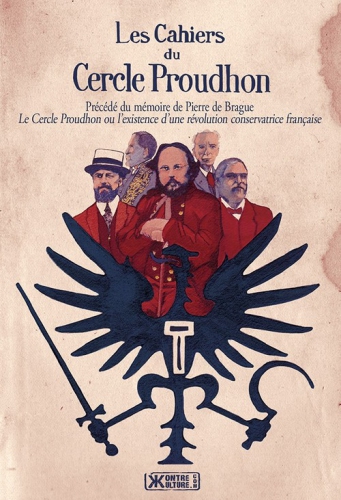

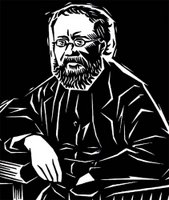 Si l’on s’en tient aux théories, Proudhon, par son fédéralisme, son mutualisme, sa critique acide de la démocratie et de la propriété capitaliste, ainsi que son caractère de farouche pourfendeur de la culture bourgeoise, a su permettre –malgré les tentatives de récupération des socialistes républicains- « à des Français, qui se croyaient ennemis jurés, de s’unir pour travailler de concert à l’organisation du pays français ». Nous touchons là un point essentiel : Proudhon était un homme d’ordre et non cet anti-étatiste anti-théiste et anti-propriétaire primaire que l’on veut nous faire accroire… C’est en tant que prophète de « l’ordre social français » que les membres du Cercle célèbrent ce « grand réaliste », ce « Maître de la contre-révolution », ce « Proudhon constructeur » à l’esprit et à la foi révolutionnaire. J’arrête ici, c’est certainement déjà trop de dialectique pour les quelques placides intellectuels de « gôche » qui prétendent s’accaparer la figure de ce rude fils de paysan, viril et guerrier, inaltérable et hardi défenseur du Travail, de la Famille et de la Terre (qui a dit Patrie ?) ; je ne voudrai pas être désigné responsable de l’ataraxie mentale dont ils souffrent, si peu nombreux soient-ils.
Si l’on s’en tient aux théories, Proudhon, par son fédéralisme, son mutualisme, sa critique acide de la démocratie et de la propriété capitaliste, ainsi que son caractère de farouche pourfendeur de la culture bourgeoise, a su permettre –malgré les tentatives de récupération des socialistes républicains- « à des Français, qui se croyaient ennemis jurés, de s’unir pour travailler de concert à l’organisation du pays français ». Nous touchons là un point essentiel : Proudhon était un homme d’ordre et non cet anti-étatiste anti-théiste et anti-propriétaire primaire que l’on veut nous faire accroire… C’est en tant que prophète de « l’ordre social français » que les membres du Cercle célèbrent ce « grand réaliste », ce « Maître de la contre-révolution », ce « Proudhon constructeur » à l’esprit et à la foi révolutionnaire. J’arrête ici, c’est certainement déjà trop de dialectique pour les quelques placides intellectuels de « gôche » qui prétendent s’accaparer la figure de ce rude fils de paysan, viril et guerrier, inaltérable et hardi défenseur du Travail, de la Famille et de la Terre (qui a dit Patrie ?) ; je ne voudrai pas être désigné responsable de l’ataraxie mentale dont ils souffrent, si peu nombreux soient-ils.
 del.icio.us
del.icio.us
 Digg
Digg





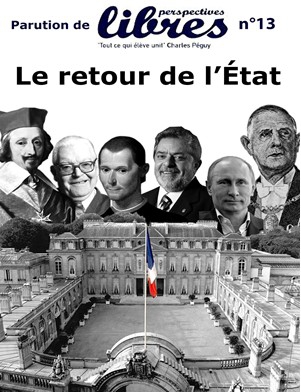












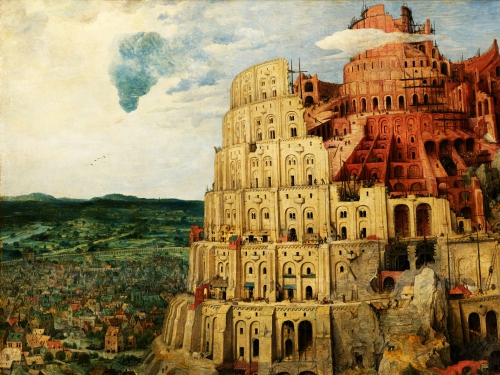





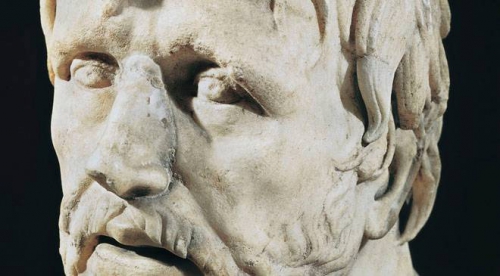








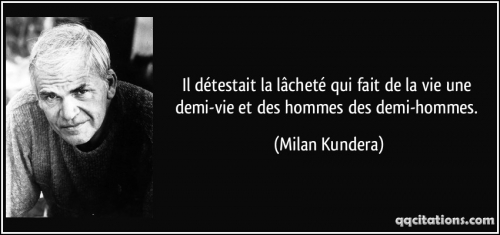
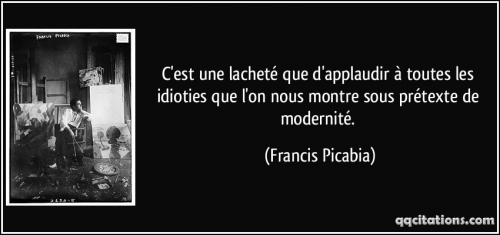
 Ce qu’a montré magistralement l’économiste et moraliste Bernard Maris dans son dernier livre, paru au même moment que son assassinat (on pense au roman Plateforme), c’est que le cœur des livres de Houellebecq c’est une protestation passionnée, vitale contre la domination de l’économie sur nos vies.
Ce qu’a montré magistralement l’économiste et moraliste Bernard Maris dans son dernier livre, paru au même moment que son assassinat (on pense au roman Plateforme), c’est que le cœur des livres de Houellebecq c’est une protestation passionnée, vitale contre la domination de l’économie sur nos vies. 